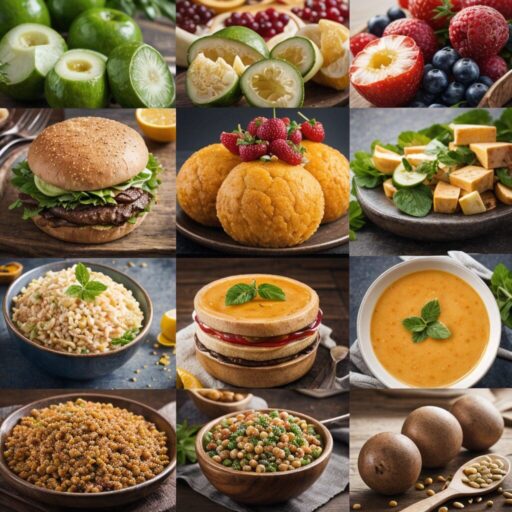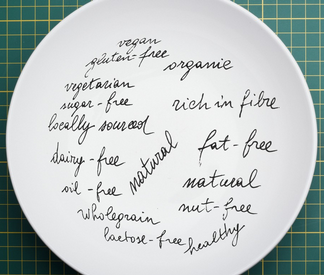Navigating a Food-Centered Holiday
with Care

Thanksgiving is often a holiday where food takes center stage, with large, indulgent meals at the heart of many gatherings. But for some, the focus on food can be challenging. If you have food allergies, dietary restrictions, or are navigating an eating disorder, Thanksgiving can bring stress and discomfort. If you’re feeling uneasy about this aspect of the holiday, know that you’re not alone—many people share your experience, and it’s completely okay.
You Are Not Alone

For people with dietary restrictions, the typical Thanksgiving meal can feel overwhelming. Whether it’s due to allergies, specific dietary choices, or a need to manage eating habits mindfully, the holiday’s food-centric nature can bring up mixed emotions. You may feel a bit out of place or under pressure to eat foods that aren’t suitable for you, especially when everyone else seems to be indulging. These feelings are more common than you might realize. Many people struggle with similar concerns, and it’s entirely okay to feel this way.
Consider reaching out to a friend or support group, even if it’s just to share your feelings or hear that someone else understands. Just knowing you’re not alone in feeling this way can make a difference, providing a little comfort as you approach the holiday.
Nothing is “Wrong” with You

Society often sets up expectations around holidays, especially Thanksgiving, which focuses heavily on food, indulgence, and sharing meals. It can feel isolating if you’re not able to partake in the same way as others. But remember, there is absolutely nothing wrong with choosing to honor your health and well-being. Thanksgiving is about more than just food; it’s also about connection, gratitude, and shared experiences.
When you prioritize your needs, you’re honoring what keeps you balanced and healthy. By setting boundaries that feel right to you, you’re practicing Self respect, which can bring its own kind of peace to the day. The truth is, there’s no “right” or “wrong” way to celebrate Thanksgiving—it’s all about creating a day that feels safe, comforting, and aligned with what’s best for you.
What You CAN Do

Navigating Thanksgiving with dietary needs is easier with a little awareness and planning. Communicating openly and preparing ahead of time can help you feel more comfortable, allowing you to focus on enjoying the day.
First, Communicate Your Needs
Open communication is key. Reach out to your family or host ahead of time to share your dietary restrictions, allergies, or concerns. Explain why your specific needs are essential for your health and well-being. When people understand what you need, they’re more likely to be supportive and accommodating. This simple step can make the holiday feel more inclusive and less stressful for you.

Next, Plan and Prepare
Offering to bring a dish or two that aligns with your dietary needs can be a great way to ensure there’s food you’re comfortable eating. It also allows you to share your preferences with others and, perhaps, introduce them to some new dishes they might enjoy as well. Consider preparing something that fits within your dietary needs, like a healthier version of a traditional favorite or a unique dish that brings you comfort.
If the indulgence of the meal feels overwhelming, focus on dishes that feel balanced for you, like lighter sides or foods that fit your needs. Planning a menu that you feel good about is an empowering way to approach the holiday.
What You Can Do Differently

If you’re worried about the focus on food, try shifting your attention to the social and emotional aspects of the gathering. Thanksgiving doesn’t have to be all about the food. Spending quality time with others, enjoying conversations, or simply appreciating the holiday atmosphere can make the day more enjoyable.

If you find your Self in situations where people offer food that doesn’t fit your needs, practice a simple, polite way to decline. Something like, “Thank you so much for offering, it looks wonderful! I’ll just stick with what I brought for now, but I really appreciate your thoughtfulness.” These kinds of responses let you maintain your boundaries while expressing appreciation for others’ efforts.
Consider connecting with a friend or family member who understands your needs and can offer support if you feel uncomfortable. Having someone by your side who “gets it” can make the experience more manageable and even enjoyable.
Gentle Reminder
Setting boundaries around food can feel difficult, especially during Thanksgiving, but it’s okay to protect your well-being. You’re allowed to decline food that doesn’t align with your needs, and it’s okay to focus on what makes you feel comfortable. Remember, Thanksgiving can still be a meaningful celebration without all the food expectations. By focusing on connection, gratitude, and the experiences that make you feel grounded, you create a holiday that truly honors your Self.

Your well-being matters. This year, allow Thanksgiving to be a day of caring for your Self, celebrating in the way that feels best for you.

